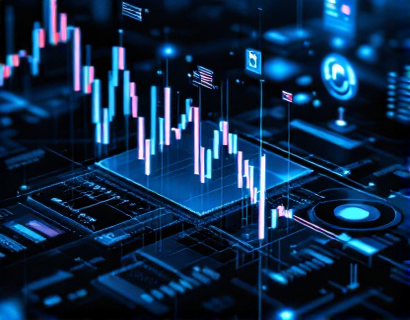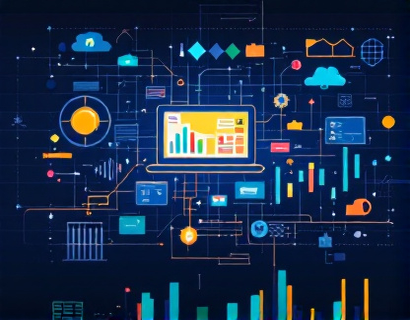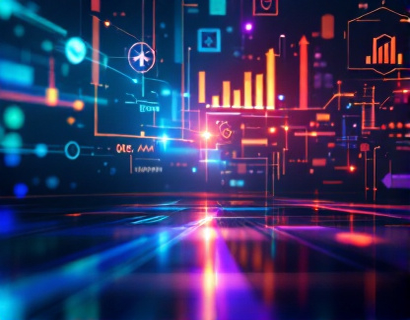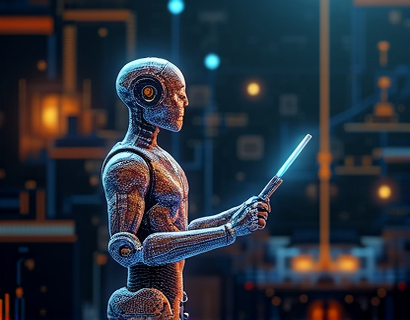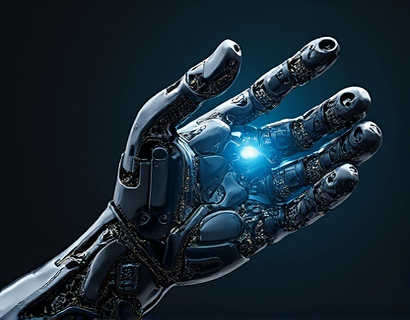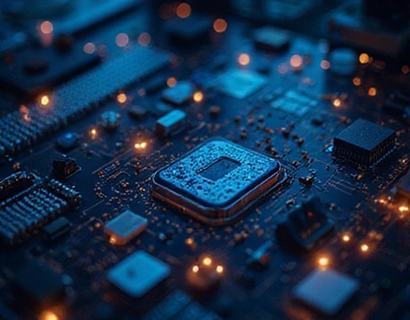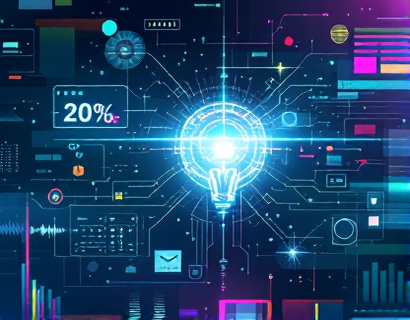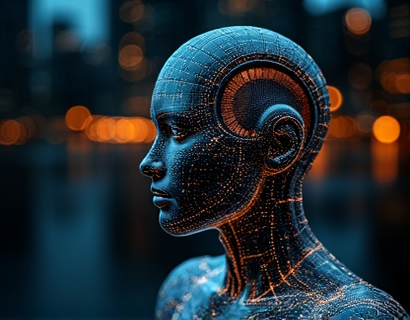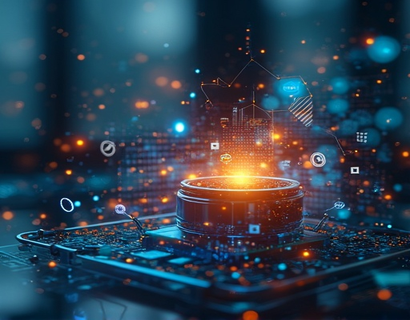Revolutionizing Digital Finance and Tech: The Synergy of AI and Crypto
The integration of artificial intelligence (AI) with cryptocurrency is ushering in a new era of digital finance and technology, promising enhanced user experiences and groundbreaking solutions. This fusion is not merely an evolution but a revolution, redefining how we interact with financial systems and technological services. The potential of AI in the crypto space is vast, offering innovations that can streamline processes, enhance security, and create more intuitive user interfaces. This article delves into the transformative impact of this synergy, exploring how it is reshaping the landscape of smart, integrated digital services.
The Intersection of AI and Cryptocurrency
The convergence of AI and cryptocurrency is rooted in the inherent characteristics of both technologies. AI, with its capabilities in machine learning, natural language processing, and predictive analytics, complements the decentralized, secure, and transparent nature of blockchain and cryptocurrencies. This combination opens up numerous avenues for innovation, from improving transaction processing to enhancing user interactions and security measures.
One of the primary areas where AI and cryptocurrency intersect is in transaction processing and validation. Traditional blockchain networks rely on consensus mechanisms like Proof of Work (PoW) or Proof of Stake (PoS), which can be slow and energy-intensive. AI can optimize these processes by predicting network behavior, identifying bottlenecks, and proposing more efficient consensus algorithms. For instance, AI-driven algorithms can dynamically adjust parameters to balance security and transaction speed, ensuring a smoother and more efficient network operation.
Enhanced Security Through AI
Security is a paramount concern in the crypto world, and AI offers powerful tools to bolster it. Machine learning models can analyze vast amounts of data to detect anomalies and potential threats in real-time. By continuously learning from new data, these models become increasingly adept at identifying and mitigating risks, such as fraudulent transactions and cyberattacks. This proactive approach to security not only protects users but also enhances the overall trust in cryptocurrency systems.
Another critical aspect of security is identity verification and compliance. AI-powered solutions can streamline know-your-customer (KYC) and anti-money laundering (AML) processes by automating the analysis of user data and transaction patterns. This not only reduces the burden on human operators but also ensures a higher level of accuracy and compliance, making the crypto ecosystem more robust and user-friendly.
Smart Contracts and AI: A Powerful Duo
Smart contracts, self-executing contracts with the terms directly written into code, are a cornerstone of blockchain technology. When combined with AI, smart contracts can become even more intelligent and adaptive. AI can analyze complex data sets to inform the logic within smart contracts, making them more responsive to changing conditions and user needs. For example, AI-driven smart contracts can automatically adjust terms based on market conditions, user behavior, or other dynamic factors, ensuring that agreements remain fair and relevant.
Moreover, AI can enhance the execution and monitoring of smart contracts. By integrating machine learning models, these contracts can predict potential issues, optimize performance, and even self-correct minor errors. This level of autonomy and intelligence significantly reduces the risk of human error and increases the reliability of smart contract operations.
User Experience Innovations
The user experience in the crypto space is often criticized for being complex and intimidating. AI-driven solutions are poised to change this narrative by creating more intuitive and user-friendly interfaces. Natural language processing (NLP) enables users to interact with crypto platforms using natural language commands, making the experience more accessible to non-technical users. Chatbots and virtual assistants powered by AI can provide real-time support, answer queries, and guide users through complex processes, enhancing overall satisfaction and engagement.
Personalization is another area where AI shines. By analyzing user behavior and preferences, AI can tailor the user interface and experience to individual needs. This could include customized dashboards, recommended actions, and personalized alerts, all designed to make the user's journey more seamless and efficient. Such personalization not only improves user experience but also increases user retention and loyalty.
Market Predictions and Trading Strategies
AI's predictive capabilities are particularly valuable in the volatile world of cryptocurrency trading. Machine learning algorithms can analyze historical data, market trends, and even social media sentiment to forecast price movements with greater accuracy. This allows traders to make more informed decisions, potentially increasing their returns and reducing risks. AI-driven trading bots can execute trades based on these predictions, operating 24/7 without human intervention, thus capitalizing on market opportunities in real-time.
Furthermore, AI can help in identifying emerging trends and patterns that human analysts might miss. By processing vast amounts of data from various sources, AI can uncover insights that inform trading strategies and investment decisions. This data-driven approach to trading is revolutionizing the way users engage with the crypto market, making it more strategic and less speculative.
Decentralized Finance (DeFi) and AI
Decentralized Finance (DeFi) is an exciting frontier where AI and cryptocurrency converge to create innovative financial services. DeFi platforms leverage blockchain technology to offer lending, borrowing, trading, and other financial activities without intermediaries. AI can enhance these services by providing more accurate risk assessments, optimizing loan terms, and detecting fraudulent activities. For instance, AI-driven credit scoring models can evaluate the creditworthiness of users based on alternative data sources, expanding access to financial services for underserved populations.
AI can also improve liquidity management in DeFi protocols. By predicting user behavior and market conditions, AI can optimize the allocation of liquidity pools, ensuring that they are efficiently utilized and that users receive fair returns. This level of optimization is crucial for the sustainability and growth of DeFi ecosystems.
Challenges and Considerations
While the potential of AI in the crypto space is immense, there are several challenges and considerations that must be addressed. One of the primary concerns is the regulatory landscape. The intersection of AI and cryptocurrency operates in a relatively uncharted legal territory, and regulatory bodies are still grappling with how to oversee these innovations. Ensuring compliance while fostering innovation requires a balanced and forward-thinking approach from both developers and regulators.
Another challenge is the technical complexity involved in integrating AI with blockchain systems. Developing robust, scalable, and secure AI models that can operate within the constraints of blockchain technology is a significant hurdle. Continuous research and development are necessary to overcome these technical barriers and create solutions that are both effective and practical.
Privacy is also a critical issue. While AI can enhance security, it also raises concerns about data privacy and the potential for misuse. Ensuring that AI-driven solutions respect user privacy and comply with data protection regulations is essential for building trust and adoption.
Future Prospects
The future of AI and cryptocurrency is bright, with numerous possibilities on the horizon. As AI technology continues to advance, we can expect even more sophisticated applications in the crypto space. One promising area is the development of AI-powered decentralized autonomous organizations (DAOs), which can leverage machine learning to make collective decision-making more efficient and democratic. These DAOs could revolutionize governance in both financial and non-financial contexts, creating more transparent and responsive systems.
Another exciting prospect is the integration of AI with other emerging technologies like the Internet of Things (IoT) and 5G networks. This convergence could lead to the creation of smart financial ecosystems where devices and systems interact seamlessly, enabling real-time financial transactions and services. The potential for innovation is vast, and the synergy between AI and cryptocurrency is likely to drive much of this progress.
In conclusion, the fusion of AI and cryptocurrency is transforming digital finance and technology, offering enhanced user experiences and setting new standards in the industry. By addressing the challenges and embracing the opportunities, this synergy will continue to shape the future of smart, integrated digital services, paving the way for a more efficient, secure, and user-friendly financial landscape.




